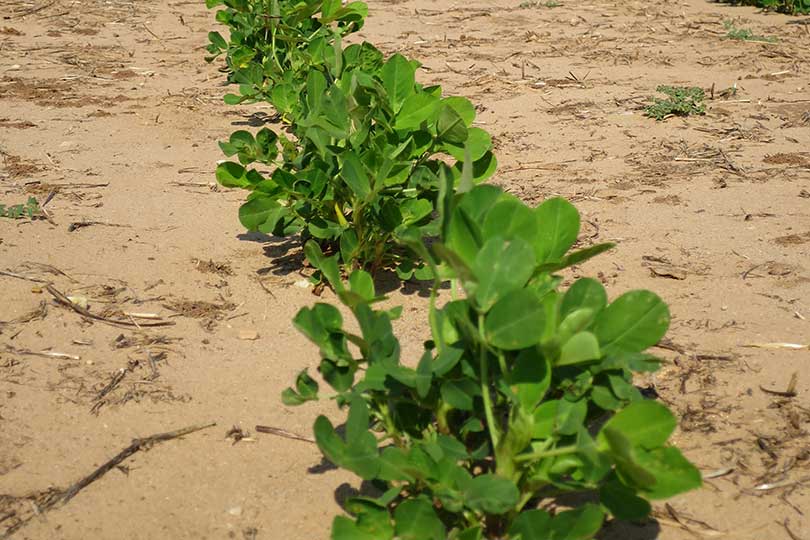Extended wet conditions in the Texas Southern Plains have created the ideal setting for peanut disease development. The mixture of cool temperatures, high humidity and overcast skies has the potential to make the peanut crop more susceptible to plant diseases like leafspot and Sclerotinia, according to Southwest Farm Press.
“It’s been wet,” Texas AgriLife Extension pathologist and state peanut specialist Jason Woodward told Southwest Farm Press. “It’s been wettest where we have the most peanuts, Gaines County. That area has received as much as 7-10 inches of rain over the past two weeks.”
But washout has not been evident in fields and Woodward expects isolated damage.
“The plants were at a stage where they had already lapped, so we didn’t get a lot of washout,” Woodward said.
He said farmers are scouting for disease infestations. The earlier planted peanuts, like Spanish peanuts that will be harvested in a couple of weeks, shouldn’t need to be treated if no significant defoliation is found.
Peanut yields and quality could suffer if appropriate fungicide treatment is not properly followed.
“If growers are nervous about leafspot, they may want to invest a little money spraying, especially if they think they have good yield potential,” Woodward said. “For now, we’re watching, waiting and praying.”
Leafspot, however, is more of a concern for peanuts set for late October harvest. Woodward recommends farmers apply a fungicide if they have good yield potential.
“Peanuts can take a good bit of defoliation without significant damage, but we want to make sure the disease doesn’t move from the leaves to the pegs,” he said.
Woodward said Sclerotinia is a greater concern and harder to control for peanuts under these conditions. He said one treatment may not be enough.
“The 10-day period of overcast, cool, wet conditions were also very conducive for Sclerotinia. If producers have fields with a history of it, they could see yield loss if not treated. Sclerotinia can be more damaging than leafspot. We can control leafspot fairly well,” he said.

